Deviated Septum Surgery in Karol Bagh, Delhi
Introduction
ENT stands for ear, nose, and throat, as ENT doctors and specialists are trained to diagnose and treat the medical conditions that affect these organs. The branch of medical science that deals with the detection and care of ear, nose, and throat disorders is called otorhinolaryngology. Otorhinolaryngologists also rely on surgical procedures to treat the severe symptoms and conditions of the organs.
The septum is the large dividing cartilage of the nose that separates the nose vertically into left and right sides. Most people have an anatomically centered septum that evenly divides the nose. But for some people, the septum becomes uneven, making one nostril larger than the other. When the unevenness of the septum is severe and leads to medical complications, it causes a medical condition known as ‘Deviated Septum’.
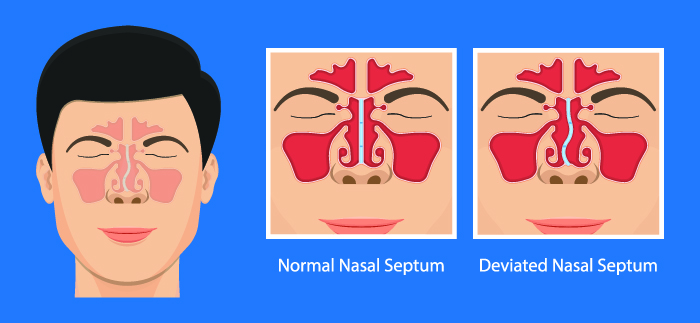
What are the symptoms of a deviated septum?
When a person experiences deviated septum, the nasal passages are displaced, which leads to expansion of one nostril/passage and shrinking/blockage of the other. Some of the commonly observed symptoms of the deviated septum are:
- Blockage/congestion of one or both of the nostrils
- Swelling or damage to the inner lining/tissue of the nose
- Inflammation
- Visible nasal unevenness
- Dryness caused by excess air inhaled from the enlarged nostril
- Nosebleeds
- Pain and discomfort
- Sinus problems
- Infections
- Headache
- Nasal drip
- Snoring
- Sleep Apnea
- Nasal obstruction, or alternate obstruction of the nostrils
- Narrowed nasal passages
- Worsened cold/allergies
These are some of the symptoms of a deviated septum. If you observe any of those symptoms, it might indicate a deviated septum, which must be treated soon by consulting an ENT specialist.
What causes deviated septum?
Individuals can have various causes for their deviated septum. These causes may vary from person to person. Some of these causes are:
- Genetic factors: Some people are born with a deviated septum, as it is also a form of a hereditary disorder.
- Childbirth: Some infants develop a deviated septum during childbirth. It can also form in utero, or when the baby is in the womb. An injury to the nose of the infant that is caused during childbirth can also cause a deviated septum.
- Injury or trauma to the nose: An accident that results in an impact/injury to the nose can cause a deviated septum. Nasal injuries caused by contact sports such as boxing, wrestling, etc. can also lead to a deviated septum.
- Aging: As people age, their nasal structure goes through some changes. This can lead to a deviated septum, or worsen the symptoms of existing deviated septum among seniors.
When to see a doctor?
If you experience recurring sinus infections or severe symptoms of a deviated septum such as frequent nosebleeds, extreme pain, or blocked nostrils, you must consult a doctor or an ENT specialist near you. If the symptoms are chronic, recurring, or acute, you should get your nose checked for signs of a deviated septum, and receive due treatment from a professional medical practitioner.
If you have faced an injury, trauma, or an accident that has inflicted damage to your nose/nasal structure, you should immediately consult an otorhinolaryngologist. Delaying consultation and medical treatment can worsen the symptoms and damage your nose or respiratory organs.
Request an appointment at Apollo Spectra Hospitals, Karol Bagh, New Delhi.
Call 1860 500 2244 to book an appointment.
How is a deviated septum treated?
When your doctor has diagnosed the deviated septum, they may prescribe medications such as painkillers, NSAIDs, and other medicines to relieve the pain and other symptoms. If the symptoms persist, your doctor may recommend septoplasty - a surgical procedure to treat the septum and facilitate better breathing.
For the treatment of milder cases of a deviated septum, a balloon septoplasty may be conducted. In severe cases, the septoplasty may be combined with a rhinoplasty to improve the appearance. During a septorhinoplasty, the surgeon will make incisions on the nose and remove the excess cartilage, and even out the nasal passages.
Request an appointment at Apollo Spectra Hospitals, Karol Bagh, New Delhi.
Call 1860 500 2244 to book an appointment
Conclusion
Delaying the initial signs and symptoms can be detrimental to the health and quality of life of the patient. Since the nasal blockages can inhibit breathing capacity and lead to severe respiratory issues and organ damage. Deviated septums can be treated by timely diagnosis and treatment from experienced otorhinolaryngologists. If you have experienced any of the symptoms of a deviated septum recently, consult an ENT specialist near you.
Yes, a severely deviated septum can be fatal. It can hamper our ability to breathe while we sleep, and even lead to sleep apnea, or OSA.
An untreated deviated septum can lead to OSA. Untreated Obstructive Sleep Apnea can lead to hypertension, cardiac failure, stroke, heart attack, diabetes, sleep deprivation, ADHD, depression, and even death.
Yes. A septoplasty or rhinoplasty can remove the nasal blockages, enhance breathing, improve the quality of life, and reduce the chances of sleep apnea. The surgery is worth it since it treats severe and chronic forms of a deviated septum.
Symptoms
Our Doctors
DR. AMEET KISHORE
MBBS, FRCS - ENT(Gla...
| Experience | : | 25 Yeras Experience |
|---|---|---|
| Speciality | : | ENT, Head and Neck S... | Location | : | Chirag Enclave |
| Timings | : | Thur : 9:00 AM to 10... |
DR. ASHWANI KUMAR
DNB, MBBS...
| Experience | : | 9 Yeras Experience |
|---|---|---|
| Speciality | : | ENT, Head and Neck S... | Location | : | Chirag Enclave |
| Timings | : | Thur : 9:00 AM to 10... |
DR. MANISH GUPTA
MBBS, MS (ENT)...
| Experience | : | 23 Yeras Experience |
|---|---|---|
| Speciality | : | ENT, Head and Neck S... | Location | : | Chirag Enclave |
| Timings | : | Mon, Wed: 12:00 PM t... |
DR. R K TRIVEDI
MBBS, DLO, MS (ENT)...
| Experience | : | 44 Yeras Experience |
|---|---|---|
| Speciality | : | ENT, Head and Neck S... | Location | : | Karol Bagh |
| Timings | : | Wed, Fri : 12:00 PM ... |
DR. RAJEEV NANGIA
MBBS, MS (ENT)...
| Experience | : | 29 Yeras Experience |
|---|---|---|
| Speciality | : | ENT, Head and Neck S... | Location | : | Karol Bagh |
| Timings | : | Tue, Sat : 12:00 PM ... |
DR. SANJIV DANG
MBBS, MS (ENT)...
| Experience | : | 34 Yeras Experience |
|---|---|---|
| Speciality | : | ENT, Head and Neck S... | Location | : | Karol Bagh |
| Timings | : | Mon - Sat : 9:00 AM ... |
DR. S C KAKKAR
MBBS, MS (ENT), DLO,...
| Experience | : | 34 Yeras Experience |
|---|---|---|
| Speciality | : | ENT, Head and Neck S... | Location | : | Karol Bagh |
| Timings | : | Available by prior a... |
DR. NISHI GUPTA
MBBS, MS - ENT, DNB ...
| Experience | : | 26 Yeras Experience |
|---|---|---|
| Speciality | : | ENT, Head and Neck S... | Location | : | Karol Bagh |
| Timings | : | Mon, Tues, Thurs, Fr... |
DR. NITYA SUBRAMANIAN
MBBS, DLO, DNB (ENT)...
| Experience | : | 17 Yeras Experience |
|---|---|---|
| Speciality | : | ENT, Head and Neck S... | Location | : | Karol Bagh |
| Timings | : | Mon & Thur : 11:00 A... |
DR. SORABH GARG
MBBS, DNB (Anaesthes...
| Experience | : | 16 Yeras Experience |
|---|---|---|
| Speciality | : | Pain Management... | Location | : | Karol Bagh |
| Timings | : | Mon - Sat : 9:00 AM ... |
DR. CHANCHAL PAL
MBBS, MS (ENT)...
| Experience | : | 40 Yeras Experience |
|---|---|---|
| Speciality | : | ENT, Head and Neck S... | Location | : | Chirag Enclave |
| Timings | : | Thur, Fri : 11:00 AM... |
DR. LALIT MOHAN PARASHAR
MS (ENT)...
| Experience | : | 30 Yeras Experience |
|---|---|---|
| Speciality | : | ENT, Head and Neck S... | Location | : | Chirag Enclave |
| Timings | : | Mon, Wed, Fri - 9:00... |
DR. SANJAY GUDWANI
MBBS, MS (ENT)...
| Experience | : | 31 Yeras Experience |
|---|---|---|
| Speciality | : | ENT, Head and Neck S... | Location | : | Chirag Enclave |
| Timings | : | Tue, Fri : 5:00 PM t... |
DR. SWARAJ MISHRA
MBBS - JLN Medical C...
| Experience | : | 28 Yeras Experience |
|---|---|---|
| Speciality | : | ENT, Head and Neck S... | Location | : | Chirag Enclave |
| Timings | : | Mon, Wed, Thur & Sat... |
DR. NAYEEM AHMAD SIDDIQUI
MBBS, DLO-MS, DNB...
| Experience | : | 14 Yeras Experience |
|---|---|---|
| Speciality | : | ENT, Head and Neck S... | Location | : | Chirag Enclave |
| Timings | : | Mon - Sat : 11:00 AM... |
DR. SALONI SINHA
MBBS, MS Surgery...
| Experience | : | 7 Yeras Experience |
|---|---|---|
| Speciality | : | ENT, Head and Neck S... | Location | : | Karol Bagh |
| Timings | : | Thur : 12:00 PM to 2... |
DR. PALLAVI GARG
MBBS, MD (General Me...
| Experience | : | 17 Yeras Experience |
|---|---|---|
| Speciality | : | General Surgery & Ga... | Location | : | Karol Bagh |
| Timings | : | Mon - Fri : On Call... |
DR. VENKATA RAMESH
MBBS, MS (ENT), DNB...
| Experience | : | 34 Yeras Experience |
|---|---|---|
| Speciality | : | ENT/Obstetrics & Gyn... | Location | : | Chirag Enclave |
| Timings | : | Mon, Wed, Thur, Fri ... |
Our Top Specialities
NOTICE BOARD
CONTACT US
CONTACT US
 Book Appointment
Book Appointment


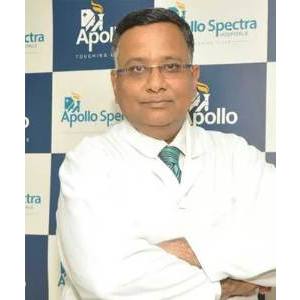

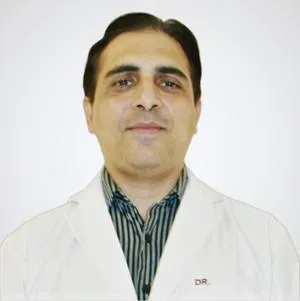


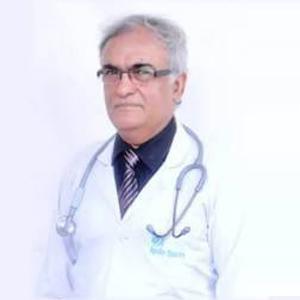
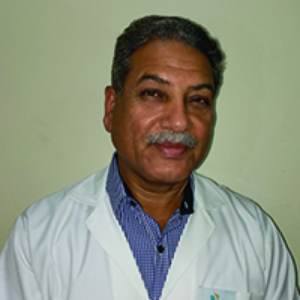







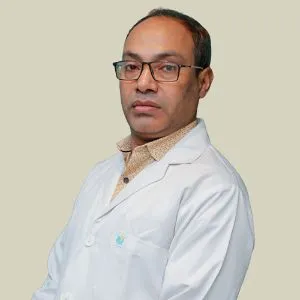
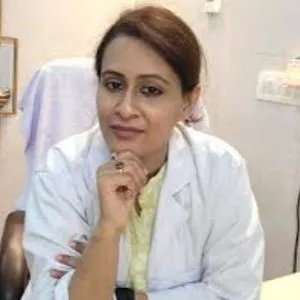


.svg)
.svg)
.svg)
.svg)








